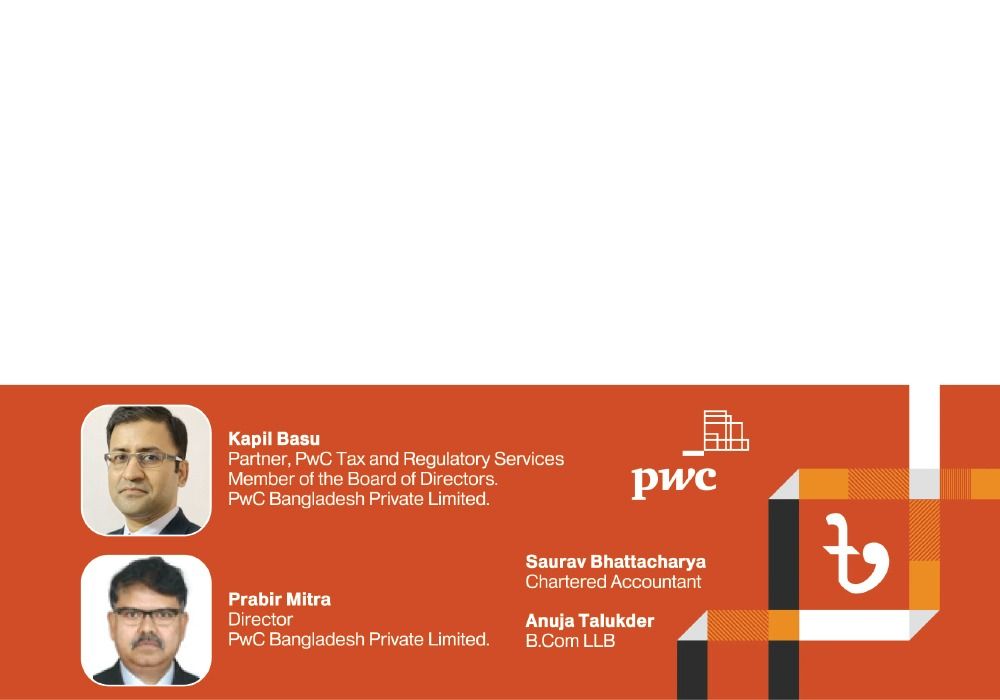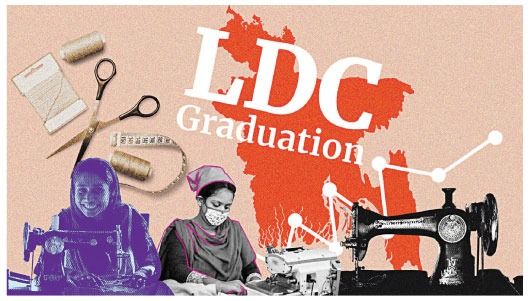- info@ficci.org.bd
- |
- +880248814801, +880248814802
- Contact Us
- |
- Become a Member
- |
- |
- |
- |
- |

As Bangladesh prepares to transit from being a Least Developed Country (LDC) to a Developing Nation in November 2026, the National Budget 2025-26 announcements reflect a strategic pivot towards unlocking competitiveness through targeted reforms in taxation, trade facilitation and investment climate enhancement. The government has designed reforms to position Bangladesh as a resilient, business-friendly destination for foreign direct investment and global trade integration.
Reforms for a competitive economy
With the proposed expenditure being pegged at BDT 7.9 trillion and a revenue of BDT 5.64 trillion, the government is moving towards mastering the balancing act of fiscal discipline coupled with prioritising development. Clearly the focus is leaning towards building a foundation for sustainable growth by institutions, modernisation of tax systems and facilitation of trade.

Direct tax reforms - building foreign investor confidence
The key theme of the reforms announced in the Budget 2025 with respect to direct tax regime is to foster transparency, bring in certainty and modernise the existing tax system.
. Tax rationalisation: Tax-free threshold for individual (general) taxpayers has been raised by BDT 25,000, with special provisions for vulnerable groups. Tax slabs have been adjusted keeping in mind current inflation and to promote equality.
. Tax certainty for corporate-tax: Tax rates for the next three tax years (2025-2028) have been pre-announced that gives the opportunity for long-term planning providing long-term certainty for investors.
. Capital market incentive: The difference in corporate-tax rate between a listed and unlisted taxpayer has been widened to 7.5% (in case of income received through bank transfer) or 5.5% (in other cases). This clearly encourages taxpayers to move from an unlisted structure to a listed entity structure.
. Digitisation of tax system: Online tax return filing is being expanded and the National Board of Revenue is undergoing automation to simplify compliance and reduce avenues for corruption.
. Reduced WHT rate on foreign consultancy services: Reduced withholding tax (WHT) rate is expected to attract more foreign expertise to engage and foster development in business sectors.
These reforms are targeted to increase the tax-to-GDP ratio that remains low compared to regional peers and enhance the government's ability to invest in infrastructure and build on human capital.

Indirect tax measures - enabling industries and consumers
The Budget 2025 introduced several changes to the value added tax (VAT) and customs duties to support domestic industries and reduce cost of living for consumers.
. VAT exemption: VAT exemption so far provided to specific sectors have been rationalised to increase revenue collection, encourage domestic industries and protect public interest.
. Increase in duty-free limit: Duty free limit for import of goods under a single invoice has been increased by BDT 2,000.
. Simplification of compliance: Return filing period for certain sectors has been extended from monthly to half-yearly. Penalties for unlawful input tax credit claimed and late filing of VAT returns have been reduced, encouraging voluntary compliance.
. Rationatisation of tariff value and minimum value: Tariff value has been abolished, while minimum value for 84 products has been reduced and increased for 23 products being imported in Bangladesh. This is a balancing act by the government to gradually abolish minimum value on imported goods in the post LDC-era.
. Import tariff: Reorganisation of the existing import tariff structure with a view to lower the tax burden on the imported goods as well as to gradually phase out duty exemption at the individual, institutional and government levels.
. Bangladesh Single Window (BSW): Integration with 43 agencies, the BSW is streamlining trade documentation and reduces clearance time.
These measures are aligned with the Bangladesh Government's goal of transitioning into a more open, competitive trade regime in the post-LDC era. Furthermore, these are steps towards integrating Bangladesh into the global value chains and enhancing its export competitiveness.
Conclusion: Strategic build-up of momentum
Acknowledging the transitional juncture coupled with geo-political disruption globally, the government has a major job at hand to maintain stability in the economy, to maintain a parity in the exchange rate through remittance growth and export earnings, continued focus on agriculture, attention to industrial revival and an eye on beneficial monetary and fiscal policies as it prepares to graduate from LDC. The government's focus on structural reforms, digital transformation, sustainable development and improvement of trade practices will help Bangladesh secure a position in the global economic arena.
The Bangladesh Budget 2025-26 is more than a fiscal document-it is a roadmap for unlocking the country's next phase of competitiveness by aligning tax, trade, and investment policies with global best practices. The government is well in the course for laying the foundation of a resilient, inclusive and globally integrated economy.
As Bangladesh looks to transitioning, new opportunities are expected to come up, as are obstacles. Having a conducive business and investment atmosphere with stable fiscal policies, laws that are well-drafted and capable of efficient administering, ensuring the greatest revenue generation with the least of pain to those who will be contributing the revenue is an absolute imperative. A beginning has been made. The government could direct its attention to the following simple steps to speed up the process : -
. gestation period after announcement of tax incentives should be allowed for legitimate tax planning
. a structured mechanism on the tax incidence with respect to fund flow under the joint venture consortium or
associations should be introduced
. fees for technical services clause should be introduced in more and more tax treaties.

SOURCE: THEDAILYSTAR





